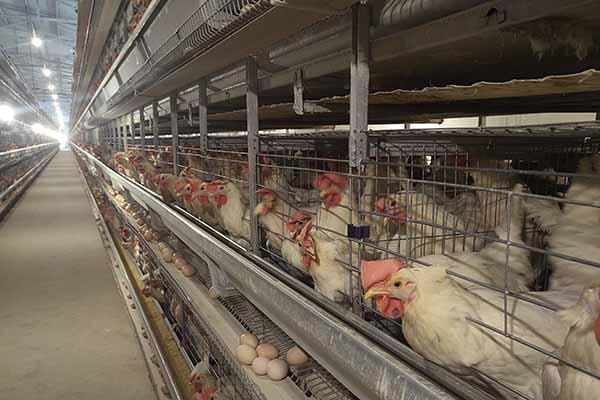How to Start a Chicken Farm Business in the Philippines: A Comprehensive Guide
Time : 2025-06-28
Introduction
Starting a chicken farm business in the Philippines can be a lucrative venture, especially considering the growing demand for poultry products in the country. With proper planning and knowledge, you can establish a successful chicken farm. In this comprehensive guide, we will cover everything you need to know about starting a chicken farm business in the Philippines, from selecting the right location to investing in the best poultry equipment.
Market Research and Planning
Before venturing into the chicken farming business, it is essential to conduct thorough market research to understand the industry trends and consumer preferences. Here are some steps to follow:
– Analyze the market: Study the existing players in the industry and identify potential gaps in the market that you can capitalize on.
– Identify your target market: Determine the types of consumers you will be catering to, such as restaurants, hotels, supermarkets, or local communities.
– Set your business goals: Establish short-term and long-term goals for your chicken farm, such as increasing the flock size or expanding to new markets.
Location Selection
Choosing the right location is crucial for the success of your chicken farm business. Here are some factors to consider:
– Accessibility: Ensure that the location is easily accessible to suppliers, customers, and laborers.
– Space: Look for a plot of land with enough space for your chickens to roam and expand your operation in the future.
– Ambiance: Consider the environmental conditions of the location, such as climate, topography, and availability of water resources.
Legal Requirements
Complying with the legal requirements is crucial for operating a chicken farm business in the Philippines. Here’s what you need to do:
– Secure the necessary permits: Apply for permits from local government units and the Department of Agriculture (DA).
– Register your business: Register your chicken farm with the Securities and Exchange Commission (SEC) and obtain a Business Name Registration (BN).
– Obtain insurance: Protect your business and chickens with appropriate insurance policies, such as liability insurance and fire insurance.
Purchase of Poultry Equipment
Investing in the right poultry equipment is vital for efficient operation and maximum profit. Here’s a list of essential equipment to consider:
– Cooler: A chicken cooler is crucial for storing eggs and meat at the appropriate temperature.
– Feeder and Waterer: Choose a suitable type of feeder and waterer for your chickens, depending on the age and breed of the birds.
– Nest Box: Nest boxes are necessary for hens to lay eggs.
– Incubator and Hatching Bench: If you plan to hatch your own chickens, an incubator and hatching bench are essential.
– Manure Handling Equipment: Consider purchasing equipment for managing chicken manure, such as manure spreaders and composters.
Building and Infrastructure
The infrastructure of your chicken farm should support the efficient functioning of your business. Here are some tips for building and infrastructure:
– Design the layout: Plan the layout of your farm, considering the spacing between coops, pathways, and storage areas.
– Choose appropriate materials: Use high-quality materials that are resistant to corrosion, temperature changes, and weather conditions.
– Incorporate biosecurity measures: Ensure that your farm is secure from predators and disease by implementing biosecurity measures.
Breeding and Raising Chickens
Breeding and raising chickens is a critical aspect of your chicken farm business. Here are some tips to ensure successful poultry management:
– Select the right breed: Choose a breed that is well-suited to your climate, feed availability, and market demand.
– Provide a balanced diet: Ensure that your chickens have access to a nutritious and balanced diet that meets their nutritional requirements.
– Implement biosecurity measures: Regularly sanitize equipment, keep your flock isolated from wild birds, and maintain a clean environment to prevent disease outbreaks.
Marketing and Sales
Developing an effective marketing strategy is essential to increase your sales and build a loyal customer base. Here are some tips:
– Brand your product: Create a strong brand identity for your chicken farm and ensure that it reflects the quality and freshness of your products.
– Establish partnerships: Partner with local businesses, restaurants, and supermarkets to distribute your products.
– Utilize social media: Leverage social media platforms to market your products and engage with potential customers.
Financial Management
Managing your finances effectively is crucial for the success of your chicken farm business. Here are some tips:
– Create a business plan: Outline your business goals, expenses, and income to plan for future growth.
– Track your expenses: Keep a detailed record of all your business expenses, including feed, equipment, labor, and marketing costs.
– Seek financial assistance: If needed, apply for loans or grants to fund your chicken farm business.
Conclusion
Starting a chicken farm business in the Philippines requires careful planning, dedication, and knowledge of the industry. By following the steps outlined in this comprehensive guide, you can establish a successful and profitable chicken farm. Remember to conduct thorough market research, comply with legal requirements, invest in quality poultry equipment, and maintain effective financial management practices.












